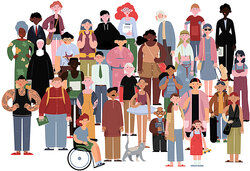Palsy Definition
Origin of Palsy
-
From Anglo-Norman paralisie, parleisie et al., from the accusative form of Latin paralysis, from Ancient Greek παράλυσις (paralusis, “palsy"), from παραλύειν (paraluein, “to disable on one side"), from παρά (para, “beside") + λύειν (luein, “loosen").
From Wiktionary
-
Middle English palsie alteration of Old French paralisie alteration of Latin paralysis paralysis
From American Heritage Dictionary of the English Language, 5th Edition
-
From pals +"Ž -y.
From Wiktionary
Find Similar Words
Find similar words to palsy using the buttons below.



